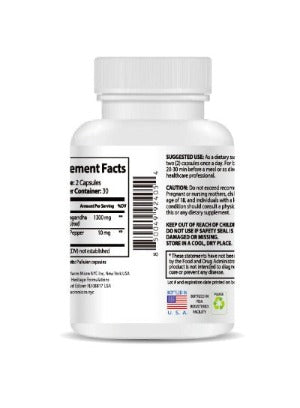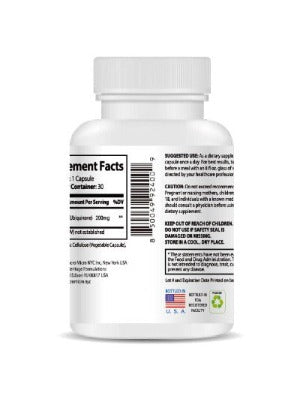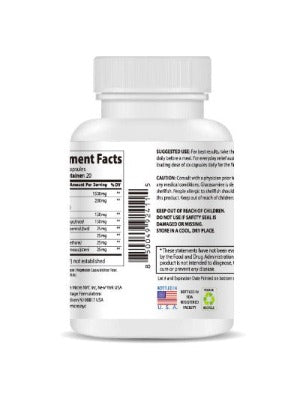If you’ve ever woken up in the middle of the night with eyes that feel gritty, burning, or just plain uncomfortable, you know how frustrating it can be. You might have even wondered, "Is this just me, or is my dry eye problem actually keeping me awake?"
The short answer is: Yes, it absolutely can.
The connection between dry eye disease and a good night’s sleep is a complex and often overlooked one. Many people who suffer from chronic dry eyes don't realize that their nighttime eye discomfort could be the very thing disrupting their rest. In this deep dive, we'll explore why dry eyes feel worse at night, how they can affect your sleep quality, and what you can do about it.
Why Dry Eyes Are a Nighttime Nuisance
For many of us, the hours we spend in bed are meant for rest and rejuvenation. But for those with dry eye, it can be a time of heightened discomfort. So, what's happening?
1. The Lid-Gap and Incomplete Eye Closure
One of the main culprits is a condition known as nocturnal lagophthalmos. This is a fancy term for what happens when your eyelids don't completely close while you're sleeping. While it might sound rare, it's actually more common than you'd think. Even a tiny gap can expose the surface of your eye to the air, causing your tears to evaporate. This leads to a vicious cycle of dryness and irritation that can easily wake you up.
2. Reduced Tear Production at Night
Your body has a natural rhythm. During the day, your eyes are producing tears to keep them lubricated and protected. At night, this production slows down significantly. Combine this with any eye exposure from incomplete closure, and you have a perfect storm for dry, painful eyes.
3. Air Conditioning and Heaters
Think about the air in your bedroom. Is it dry and cool from an air conditioner, or warm and dry from a heater? Both of these can pull moisture from the air, and in turn, from your eyes. The drier the environment, the faster your tears evaporate. This is why many people who live in dry climates or use forced-air systems find their symptoms worsen overnight.
4. Digital Eye Strain During the Day
What you do during the day can have a significant impact on your night. Spending hours in front of screens (computers, phones, TVs) can lead to digital eye strain. When you're focused on a screen, you tend to blink less frequently. This reduces the spread of your tear film and can leave your eyes feeling strained and dry by bedtime. This accumulated stress can make your eyes more sensitive to nighttime dryness, leading to an even greater level of discomfort that can keep you from falling asleep.
The Vicious Cycle: Dry Eye and Sleep Deprivation
The relationship between dry eye and sleep is a two-way street. Not only can dry eyes disrupt your sleep, but a lack of quality sleep can also worsen your dry eye symptoms.
When you are sleep-deprived, your body isn't able to fully heal and regulate itself. This includes your tear glands. Studies have shown that a lack of sleep can lead to inflammation and increase the risk of developing or worsening dry eye disease. This creates a cycle that is difficult to break:
-
Dry, irritated eyes make it hard to fall or stay asleep.
-
Poor sleep quality leads to more tired, inflamed eyes.
-
Tired, inflamed eyes are more susceptible to dryness and discomfort.
Breaking this cycle is key to getting the relief you need, both for your eyes and for your overall well-being.
A Good Night's Sleep: A Guide to Breaking the Cycle
The good news is that you don't have to suffer in silence. There are many simple, effective strategies you can use to manage your dry eye symptoms and get the restful sleep you deserve.
1. Create a Tear-Friendly Bedroom Environment
-
Use a Humidifier: This is one of the most effective steps you can take. A humidifier adds moisture back into the air, preventing your tears from evaporating so quickly. Place it near your bed for maximum benefit.
-
Adjust Your HVAC: If you can, turn down the AC or heat, or at least direct the vents away from your face. A little change can make a big difference.
-
Consider a Sleep Mask: A soft, comfortable sleep mask can help a lot, especially if you have nocturnal lagophthalmos. It gently holds your eyelids closed and creates a moist environment around your eyes, preventing them from drying out overnight.
2. Change Your Nightly Routine
-
Warm Compress: Before you go to bed, place a warm, damp cloth over your eyes for 5-10 minutes. This helps to loosen blockages in the meibomian glands (the glands that produce the oily part of your tears) and improves tear quality.
-
Lubricating Eye Drops: Your eye doctor can recommend specific lubricating eye drops or gels that are designed for overnight use. These are thicker than regular drops and are designed to stay on your eye's surface for a longer period, providing sustained relief. Be sure to use preservative-free drops if you use them frequently.
-
Avoid Screen Time Before Bed: Try to put away your phone, tablet, and laptop at least an hour before you plan to sleep. This gives your eyes a break from the strain and reduces the likelihood of dry eye symptoms flaring up once you're in bed.
3. Professional Help and Long-Term Solutions
If at-home remedies aren't enough, it's time to see an eye care professional. They can help you identify the root cause of your dry eye and recommend more targeted treatments.
-
Prescription Eye Drops: Your doctor may prescribe medications like Restasis or Xiidra, which work to increase your eye's natural tear production.
-
Punctal Plugs: These tiny, biocompatible plugs are inserted into your tear ducts to keep your natural tears on the surface of your eye for longer.
-
In-Office Procedures: There are new treatments like intense pulsed light (IPL) therapy that can help unblock your meibomian glands, improving the quality of your tears.
Conclusion: Don't Let Dry Eye Steal Your Sleep
The connection between dry eyes and sleep is a real and impactful one. For too long, many people have dismissed their nighttime eye discomfort as a minor inconvenience. But the truth is, it can significantly affect your rest, your mood, and your overall health. By understanding the causes and taking proactive steps to manage your symptoms, you can break the cycle of pain and get back to the restful, rejuvenating sleep you need. Don't let dry eye ruin your sleep—take control of your eye health, both day and night.
Frequently Asked Questions (FAQs)
Q1: Is it bad to use eye drops every night?
A1: It depends on the type of eye drops. Many over-the-counter lubricating eye drops are safe for daily use, but it's important to choose a preservative-free option, especially if you're using them frequently. Preservatives in some drops can cause irritation over time. Always consult with your eye doctor to determine the best type of drops for your specific needs.
Q2: What's the difference between eye drops and eye gel/ointment for nighttime?
A2: The main difference is consistency and duration. Eye drops are a thin liquid that provides quick, temporary relief. Eye gels and ointments are thicker and are designed to stay on the eye for longer, providing more sustained relief throughout the night. Because of their thickness, they can cause blurry vision, which is why they are usually recommended for use right before bed.
Q3: Can wearing contact lenses at night cause dry eye?
A3: Absolutely. Sleeping with contact lenses, especially those not designed for extended wear, can significantly increase the risk of dry eye and eye infections. Lenses can reduce oxygen flow to your cornea and can trap debris, leading to irritation. It's best to always remove your lenses before sleeping unless specifically advised otherwise by your eye doctor.
Q4: How does a humidifier help with dry eye at night?
A4: A humidifier adds moisture to the air. Your tears naturally evaporate off the surface of your eye, a process that is accelerated in a dry environment (like a bedroom with an AC or heater running). By increasing the humidity, the humidifier slows down this evaporation, helping to keep your tear film more stable and your eyes more comfortable throughout the night.
Q5: I've tried everything, and my eyes still wake me up. What should I do?
A5: If you've tried over-the-counter remedies and lifestyle changes without success, it's time to see an optometrist or ophthalmologist. They can perform a comprehensive eye exam to determine the underlying cause of your dry eye. It might be due to a specific issue like meibomian gland dysfunction, which requires more advanced, in-office treatments. Getting a professional diagnosis is the first step toward finding a long-term solution.









